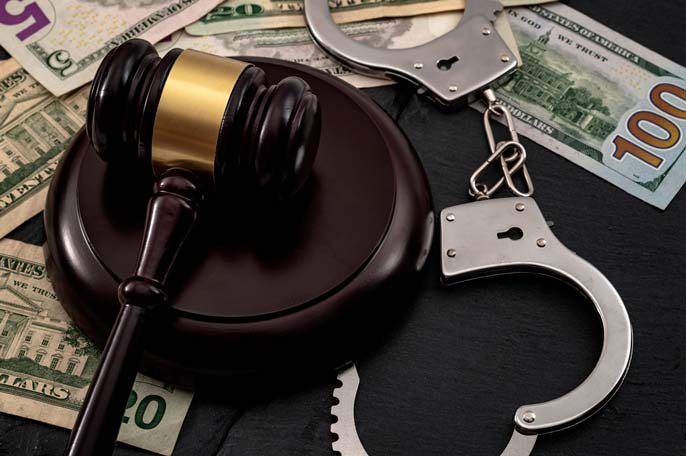
If you or a loved one has been recently arrested and subsequently released on bail, it can be a worrisome time. After all, being stuck in jail is no way to spend the holidays or any other time of year – and worrying about upcoming court dates can be a burden weighing on anyone’s shoulders. A bail bondsman can help get you or your loved one out of jail, but what about what happens after you go home? What are your rights? Can you leave the county while on bail? Or what about other travel restrictions while you’re out on bail?
When you’re out on bond, restrictions still remain even though you’re no longer in jail. If you plan on leaving the state while on bail or engaging in other opportunities to travel, you may want to think about your actions ahead of time. The wrong move here could have you on the wrong side of the law, and that could send you right back to the big house precisely when you’re trying to get your life back. Communication is key, and you can always speak to an expert or person assigned to your case if you are unsure.
What Can You Do While on Bail?
For those that are wondering what you can do while on bail, the answer depends on your crime and the terms of your bail. For the most part, you’ll be able to lead a normal life without having to worry about each action that you take, though there will be some limitations on your activities due to the terms of your bail.
First and foremost, you’ll have to return for each of your court appearances, otherwise you risk forfeiting your bail and your freedom. You can work, visit with friends and family, and otherwise engage in a normal life. In most instances, you may even be able to leave the county while on bail, as long as the terms of your bond allow it.
Generally, you can travel between cities and counties and within your state, but you’ll need to get permission to leave the state while on bond. Some bonds may allow you to leave the state if restrictions haven’t been imposed, but international travel is almost always prohibited. Just ensure you know the rules of your bail, and double-check travel arrangements. Missing an important court date could have you land in more trouble than a trip is worth.
Beyond limited travel, working, and seeing family and friends, you can also pursue hobbies and other interests as long as they don’t break the law or violate your bail. Joining a gym, spending time outdoors, and leaving the county while on bail are all generally permitted – but every case is unique.
What Can’t You Do While on Bail?
For all the things that you can do while on bail, the terms of your bail will be attached to your future behavior, such as showing up for all your court appearances. If you manage to miss those appointments or you run afoul of your bail in other ways, you may end up right back in jail per your bail agreement. That’s why more than anything else, what you can’t do on bail is more important than what you can do.
After your court appearances, which is the most important factor of your bail, it’s also crucial not to commit any crimes or brandish or possess weapons. Even if your bail doesn’t specifically mention weapons, it’s never a good idea to own or carry a firearm or other weapon after you get out on bail, especially since it can lead you to being picked up again.
It’s also a good idea to avoid staying out past curfew, which is a normal stipulation of most bails. Even if you don’t plan on leaving the county while on bail, you can still get in trouble for being outside past curfew hours, and that can put your freedom at risk. In general, don’t break the law or do anything illegal while you’re out on bail lest you end up right back in. Furthermore, for those that are wondering if they can drink while out on bail, it’s also best to refrain from using alcohol or drugs since behavior stemming from such usage can bring you right back to jail. Remember, you’re facing a difficult period of time in your life and your actions will directly affect your future.
When in doubt, get professional bail help within minutes from the bail experts at My Bail Hotline.